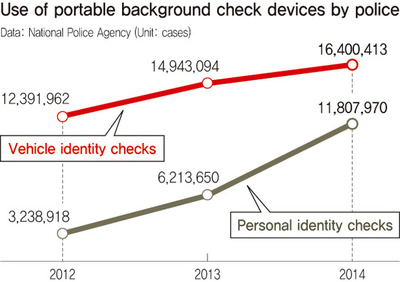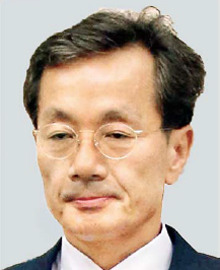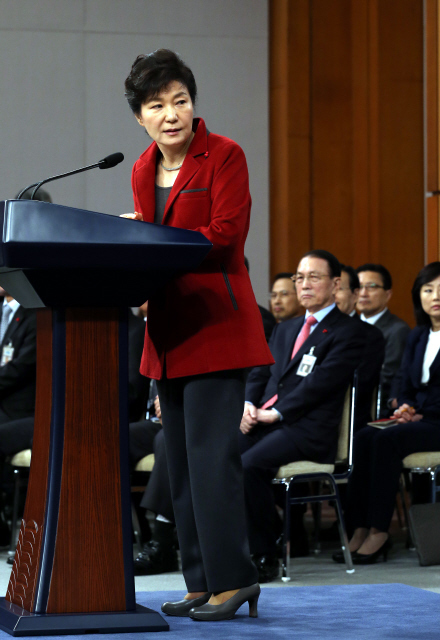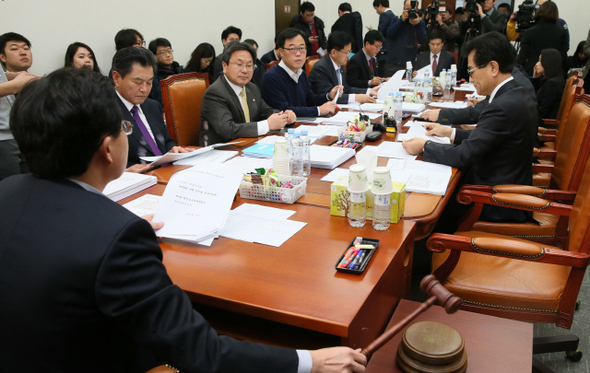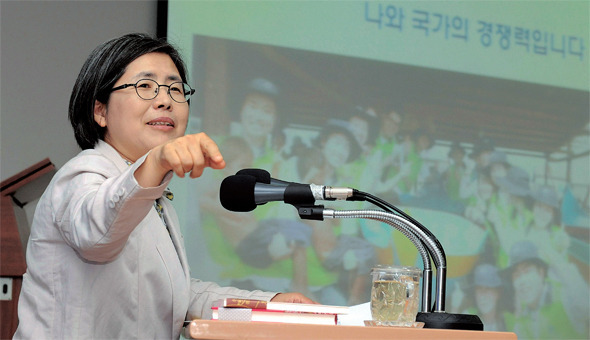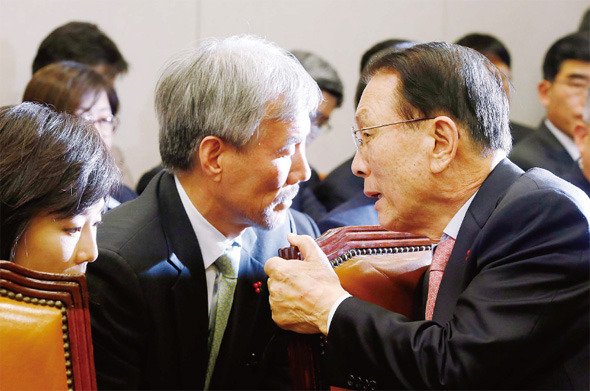As S. Korea Cracks Down on Expression, US Comment, Ban's UN Notably Silent
By Matthew Russell Lee
UNITED NATIONS, January 9 -- An ongoing press freedom case in South Korea has now echoed into the US State Department, after being repeatedly evaded at the UN in New York.
UN Secretary General Ban Ki-moon was a long-time South Korean diplomat before taking up his UN post. But he has been notably quiet about press freedom generally, and now strikingly, with regard to South Korea.
The government in Seoul has summoned Sankei Shimbun's Tatsuya Kato on possible charges of defaming President Park Geun-hye, and has blocked him from leaving South Korea in the interim.
On January 9 Inner City Press asked the UN about another case in South Korea, the expusion of a Korean American woman for espousing apparently too pro-North Korea views. The UN had no direct response other than vague support for freedom of expression.
Later on January 9, State Department spokesperson Jen Psaki was asked about both cases. From the US transcript:
MS. PSAKI: We can confirm that U.S. citizen Amy Chung, also known as Shin Eun-mi, was barred from exiting South Korea for the past three weeks. We have seen the reports indicating the prosecution has asked that Ms. Chung be deported and banned from South Korea for five years. We take our obligation to assist U.S. citizens overseas seriously. We’re in contact with Ms. Chung and providing all possible consular assistance.
As it relates to the laws, I think it’s the application of the national security law was what was used here. I think broadly speaking, our view is that the Republic of Korea has shown a consistent and longstanding commitment to the promotion and protection of human rights. In – as it relates to law, we’re concerned that the national security law, as interpreted and applied in some cases, limits freedom of expression and restricts access to the internet.QUESTION: You can confirm that she couldn’t leave for three weeks --MS. PSAKI: Mm-hmm.QUESTION: -- but you can’t confirm that she’s going to be deported? Or --MS. PSAKI: We are aware of reports that she’s been deported for allegedly violating the South Korean national security law. Beyond that, I don’t have any more details.QUESTION: Okay, and then just one more on this. This comes at the same time as a Japanese reporter who made some comments about President Park is – remains on trial and unable to leave the country. Do you have any broader concerns that this raises about freedom of the press and freedom of expression in North Korea – in South Korea?MS. PSAKI: I mean, I think I expressed that in the comments I offered as it relates to the law. I mean, broadly speaking, we believe South Korea has a strong record on human rights and freedom of expression, and we expressed just a concern about the application of the particular law in some cases.
At issue is an article that Tatsuya Kato wrote and Sankei Shimbun published, citing the South Korean publication Chosun Ilbo, that during the sinking of the Sewol ferry in April, President Park was not seen for seven hours and may have been trysting with a recently divorced former aide.
While understandably causing anger, such a report should not trigger travel bans or criminal charges.
It is particularly troubling that while Tatsuya Kato of Japan's Sankei has been targeted, the South Korean publication Chosun Ilbo from which he quoted is not being targeted. This disparate treatment of journalists, based on nationality or other factors, should not be tolerated.
As a comparison, when Afghanistan recently imposed a similar travel ban on a New York Times reporter, not only the US State Department but also many others spoke out.
But when at the UN Secretary General Ban Ki-moon's spokesman was twice -- three times, actually -- asked about South Korea's treatment of Sankei Shimbun's Tatsuya Kato, only platitudes emerged. Continuing the trend on August 31, Ban Ki-moon's comment on the coup in Lesotho did not mention that the military took over the television and radio stations there.
The day's New York Times recounted how South Korean artist Hong Sung-dam had his painting depicting Park Geun-hye and his view of her role in the sinking of the Sewol ferry censored by authorities in Gwangju.
Some including the new Free UN Coalition for Access, an anti-censorship alliance established at the UN during and counter to Ban Ki-moon's time in control, have noted a trend toward ignoring some attacks on the media. How far back does it go? What will happen in South Korea, and at the UN? Watch this site.




